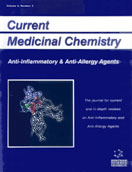Abstract
Dendritic cells (DC) represent a sentinel-like system with the capacity to capture and process antigens, to migrate into secondary lymphoid organs, and to activate naive T lymphocytes. DCs are considered as important elements in the induction of specific immune responses. The potency of DCs for induction of immune responses can be affected by a number of aspects related to their maturation stage and state of activation. For a long time, the critical role of DCs in many clinical situations was underscored. DCs in vivo might represent a favored target for immune tolerance (cancer) or immune activation (auto-immune diseases and allergic hypersensitivity). For immunotherapeutic applications, it is crucial to identify factors and agents that might affect the differentiation, maturation and function of DCs. This review will focus on the impact of the most widely used immunomodulatory drugs in the clinical setting on the properties and functions of DCs. The modulation and manipulation of DC functions through exposure of DCs to immunomodulatory agents both in vitro and in vivo is an approach that could result in therapeutic benefit in many clinical situations.
Keywords: dendritic cells, immunomodulation, tolerance, immunostimulation, cytokines
 2
2

